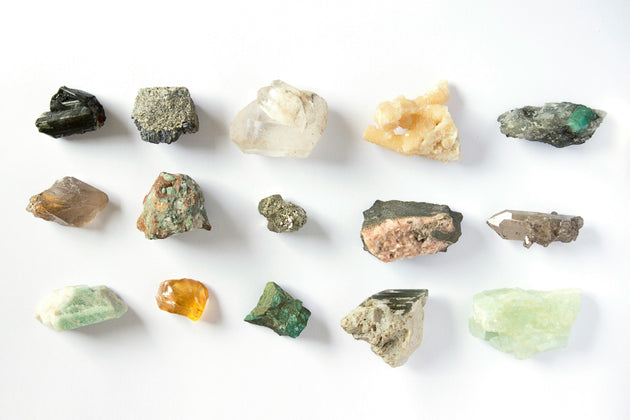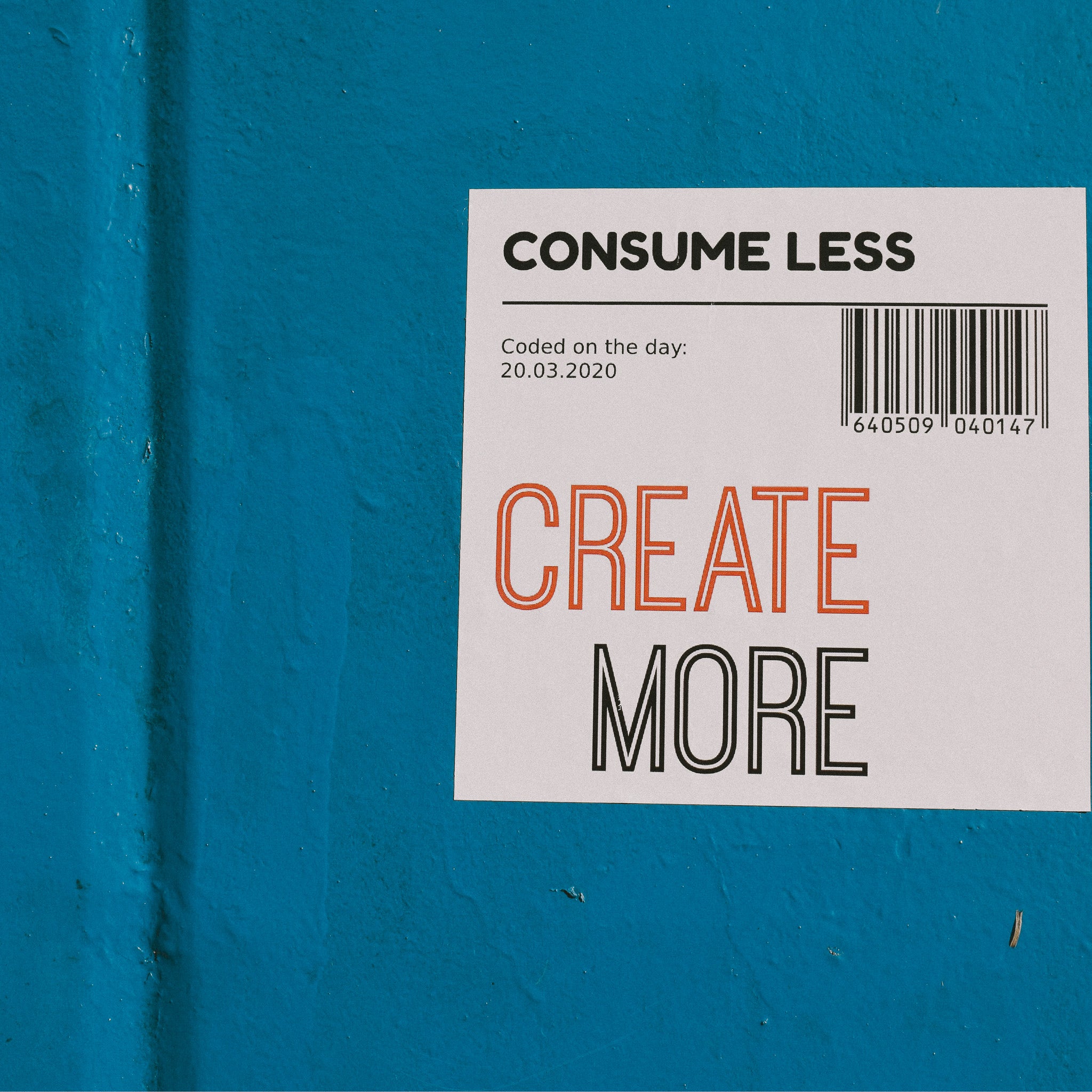Greenwashing is all the rage, and it's not a trend to be welcomed! As a consumer, you have the right to control what you buy. Unfortunately, too many companies are still gilding their image with pretense. Among the multitude of marketing slogans with eco-responsible promises, knowing whether a brand is ethical can become a real headache. That's why we've decided to share some clues with you.
What do we mean by ethical?
According to the Larousse dictionary, it's the set of moral principles on which a person's conduct is based. But that's still very vague... With this definition, it's hard to identify whether a brand is truly ethical.
If we ask ourselves what moral principles are, we can better understand that it's a question of differentiating between what is right and what is wrong. A brand is ethical if it respects the world around it. It must therefore have a positive social and environmental impact. We can even go further by specifying a commitment to animal welfare.
An important criterion for determining whether a brand is ethical: respect for the working conditions of men and women
The societal factor is a fundamental ethical pillar. All employees must be respected. This means proper remuneration, decent working hours and safe, healthy premises.
Working conditions in textile production facilities vary enormously from country to country. In most of Europe, regulations are strict and controlled. This is particularly the case in France, Italy, Spain and Portugal. This is why ethical brands naturally turn to these European factories that guarantee respect for workers.
In Asia, legislation on labor rights is virtually non-existent. Extreme, dangerous and illegal working conditions are commonplace. Numerous accidents are to be deplored, such as the collapse of the Rana Plaza building in Bangladesh on April 24, 2013, claiming 1,138 victims and injuring over 2,000.
Non-respect of the minimum wage, working days far in excess of the normal number of hours, unsafe environments and child exploitation are the daily lot of many factories in China, Bangladesh, India and many others.
But let's not cast stones at all Asian factories. Fortunately, there are some that operate responsibly. For this, you can rely on various fair trade labels, such as the FairWear Foundation.

Identify an eco-responsible brand by its impact on the environment
The second moral principle is environmental protection. An ethical company must have a reduced impact on the entire life cycle of its creations. From the materials used to transport the goods, through to the transformation of the product, every stage must take ecological issues into account.
The choice of raw materials is very important to avoid drawing on natural resources as much as possible:
- Organic, environmentally-friendly textiles (like our G.O.T.S. certified organic cotton T-shirts).
- Recycled materials for a circular economy. At aglaïa & co, this means, among other things, the use of recycled silver in our jewelry.
- Total traceability to control the entire chain, as is increasingly the case for our ethically sourced stones (the latest: Nyala pink sapphire).
Transformation processes can quickly become energy- and water-hungry, and harmful to the planet. Hence the importance of paying attention to the composition of a garment, for example, to avoid textiles made from chemical products.
Companies choosing local suppliers reduce transport distances, which drastically reduces their carbon footprint. One more point in favor of environmental impact!
Last but not least, eco-fashion is sustainable fashion. No more items that are bought and thrown away at the end of the season. They must be designed and created to be worn for a very long time.
Let's go a step further with plant-based materials for animal-friendly brands
When we look at ethical fashion, we don't always find references to respect for animals. And yet, in our opinion, it's impossible not to take it into account.
Vegan items (plant-based leather goods, non-animal textiles, etc.) and cruelty-free beauty products should complement good working conditions for workers and reduced ecological impact.
One example is the PeTA label, which guarantees that no animal materials have been used.
6 clues to recognize an ethical brand
When you discover a new brand, how do you know if you can trust it, if it respects ethical criteria, without embarking on an investigation worthy of Sherlock Holmes?

- Clear, transparent communication.
- Customers need to know what they're buying.
- Ethical brands talk about their commitments and aren't afraid to be honest if there are areas for improvement.
- Timeless, high-quality, long-lasting pieces are part of the slow-fashion approach to sustainable fashion.
- Few collections and limited stocks to avoid overproduction and overconsumption.
- Moderate sales. As initial prices are already at their lowest, companies can't undercut prices, unlike fast-fashion brands with their high margins.
- The use of environmentally-friendly materials, which you can check by looking at the composition on the labels.
- Labels. Beware, obtaining a label for a small company comes at a considerable cost. Not all responsible brands have one. But even if you can't stop there, it's still a good indication.
Choosing ethics means embracing values. We advise you to visit the websites of the brands you're interested in, and take a look at their about pages and commitments.
Beware of greenwashing in fashion!
Greenwashing is a marketing technique that aims to use the ecological argument to give an eco-responsible image when it's really nothing of the sort. It's a fine line between lies and abuse of language. Unfortunately, greenwashing is still very much present in the communications of many companies.
The number 1 intention of a truly ethical brand is to offer people the power to choose quality products that respect people and the environment. It's not to push people to buy. But greenwashing companies are adept at manipulating information to lure consumers. If you have any doubts about their communication, if something isn't clear or if it's too good to be true, there may be something fishy going on...
Buying French or European and using eco-responsible materials has a cost. An abnormally low price is generally not a good sign. But be careful! A price that's too high is no guarantee of an ethical product either.
A final word of advice... Try to look beyond the marketing hook. Behind enticing slogans may lie a completely different reality.
Organic materials? OK, but in what proportion? And what about the workers' working conditions? Made in France? Are you sure? Language is often abused. As we explained in our article on made in France fashion, the term French manufacturing doesn't always mean what it sounds like.
Of course, responsible brands face many challenges in creating ethical products. It's not easy every day, but constant improvement is a necessary challenge if we are to participate in a fairer world.
To avoid falling into the tentacles of greenwashing, there's no miracle; you have to get informed and have a global vision of the firm in question.
On our Instagram account, we regularly organize contests in partnership with companies that share similar values to ours. It's a chance for us to spoil you and introduce you to other brands that also strive to be responsible and ethical. So, see you there?



